All Stories
-
 Paleontology
PaleontologyFossil discoveries suggest the earliest dinosaurs laid soft-shelled eggs
Finding soft-shelled dinosaur eggs in the fossil record for the first time has scientists rethinking how dinosaur eggs evolved.
By Jack J. Lee -
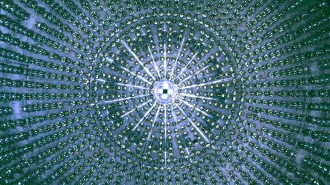 Particle Physics
Particle PhysicsPhysicists spot a new class of neutrinos from the sun
Researchers with the Borexino experiment in Italy have detected neutrinos produced in the secondary fusion process taking place in the sun’s core.
-
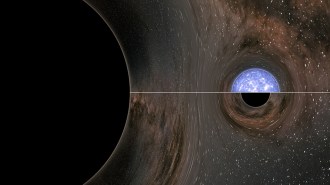 Space
SpaceLIGO and Virgo detected a collision between a black hole and a mystery object
The first evidence of an object more massive than any neutron star and more lightweight than any black hole has astronomers wondering what it is.
-
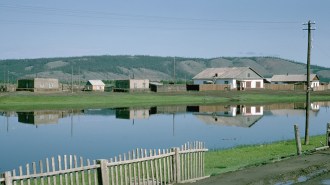 Climate
ClimateA Siberian town hit 100 degrees, setting a new record for the Arctic Circle
Verkhoyansk’s high temperature, which has yet to be confirmed, follows a six-month period of record heat in the region.
-
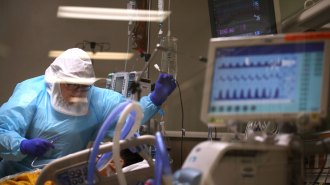 Health & Medicine
Health & MedicinePreventing dangerous blood clots from COVID-19 is proving tricky
Clinical trials of blood-clotting drugs have begun in hospitalized COVID-19 patients, as excessive clotting remains a complication of the disease.
-
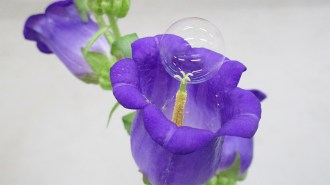 Tech
TechBubble-blowing drones may one day aid artificial pollination
Drones are too clumsy to rub pollen on flowers and not damage them. But blowing pollen-laden bubbles may help the machines be better pollinators.
-
 Quantum Physics
Quantum PhysicsTo live up to the hype, quantum computers must repair their error problems
Before quantum computers can reach their potential, scientists will need to master quantum error correction.
-
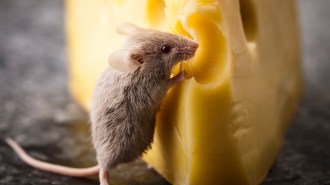 Neuroscience
NeuroscienceHow to make a mouse smell a smell that doesn’t actually exist
The ability to create a perception might lead to a deeper understanding of how the brain makes sense of the world.
-
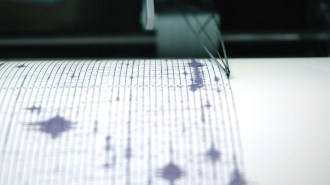 Earth
EarthMachine learning helped demystify a California earthquake swarm
Computer algorithms helped scientists find that circulating groundwater probably triggered a four-year-long series of tiny quakes in Southern California.
-
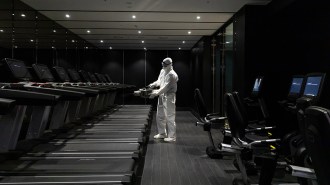 Health & Medicine
Health & MedicineCOVID-19 case clusters offer lessons and warnings for reopening
As restaurants, offices and other businesses open, trends in where and how COVID-19 transmission is happening could help guide re-entry strategies.
-
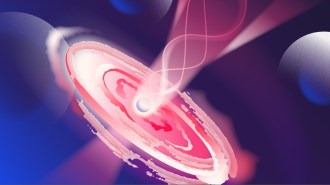 Space
SpaceBlack hole plasma jets are shaped like bell-bottoms
Jets of high-energy particles change from slightly curved sides to flared cones as they shoot away from galaxies, just like flare-legged pants.
-
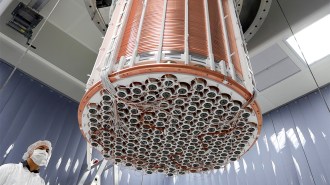 Particle Physics
Particle PhysicsAn unexpected result from a dark matter experiment may signal new particles
An excess of events spotted in the XENON1T experiment could be signs of solar axions or weird, new properties of neutrinos, but not dark matter itself.